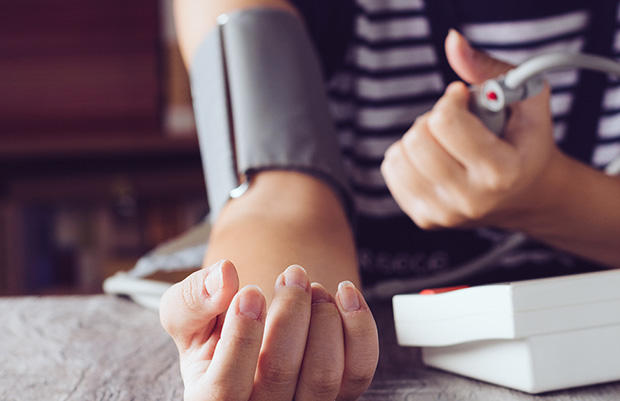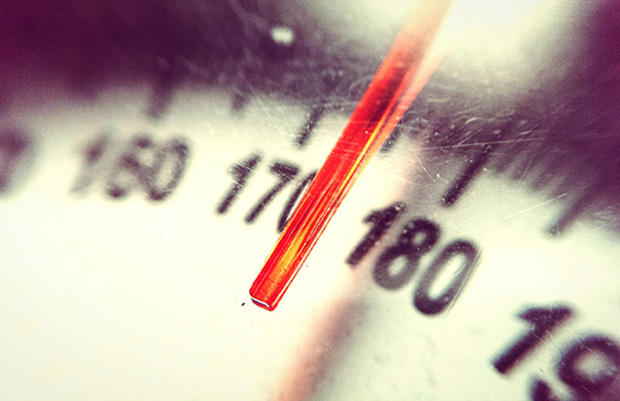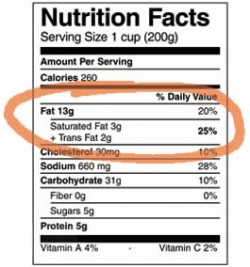"Scales create an artificial sense of confidence, and they can also crush it," says Jennie, 47, who stopped weighing herself in her 20s after years spent "in a constant worry" about her weight. Her key to maintaining a relatively consistent body weight over the years has nothing to do with the scale, but involves following a personal set of rules that includes a diet of mostly whole foods, exercising more days each week than not, learning to read her hunger cues and cut out mindless eating, and practicing self-acceptance. "I know there are people who truly struggle with their weight, but most women I know are constantly battling the same 5, 10, or 15 pounds, losing 5 and eventually gaining back 10," she says, "Those pounds don't matter. Most people don't even notice them. The most attractive quality in a person—male or female—is confidence."
You'll feel freed of a burden.
 Photograph by kaspiic/Getty Images
Photograph by kaspiic/Getty Images
For many of us, the scale is a tyrant, and it never has anything good to say. Hudnall sees hundreds of women each year who tell a similar story: When they're up a couple of pounds, the shame spiral starts—along with its toxic companion, emotional eating. If they've lost a pound or two, they feel good, but then might find themselves justifying extra treats or skipped workouts. Stepping away from the scale can be permission to let go of the emotional roller coaster. "You might find it takes the pressure off, and it's a kind of relief—you can focus on the good things you're doing, and forget about that number," says Katherine Zeratsky, a registered dietitian nutritionist at Mayo Clinic in Rochester, MN.
You'll define your health by different sets of numbers.
 Photograph by Milena Milani/Stocksy
Photograph by Milena Milani/Stocksy
Some in the medical research community identify a condition called metabolically healthy obesity to describe people whose body mass index (BMI) or weight is technically overweight or even obese, but who are healthy by several other important measures, including insulin sensitivity, blood pressure, and cholesterol levels. Regardless of whether you fall into this metabolically healthy category or not (ask your doctor), Hudnall says these factors are far more indicative of overall health than the numbers on the scale—and potentially lifesaving. When you make healthy choices, "you can see dramatic, long-lasting changes in those numbers," she says. Healthful behaviors like sensible eating and consistent exercise might also yield positive, non-numbers-based results like better sleep, confidence to try new things, and an easier time doing everyday activities like bending down to tie your shoelaces.
You'll need to watch out for withdrawal.
The siren song of the scale will likely continue to warble after you've made the decision to stop weighing yourself. "It's a process, like with any other habit," says Hudnall. She suggests approaching the withdrawal period as a phase to pass through on your way to freedom from the restrictiveness of self-weighing. Don't go cold turkey either, she urges—slow down daily weigh-ins to once a week, then once a month before asking yourself to give up the scale altogether.
You may gain weight.
 Photograph by Clinton Freeman / EyeEm/Getty Images
Photograph by Clinton Freeman / EyeEm/Getty Images
A 2-year study by Cornell University researchers found that, especially for men, daily weigh-ins were the most effective predictors of who would lose weight and keep it off over time. Researchers believe that the daily weigh-ins reinforced positive behaviors and provided motivation for participants to keep up the good work. "We think the scale also acts as a priming mechanism, making you conscious of food and enabling you to make choices that are consistent with your weight," says David Levitsky, a nutrition and psychology professor and the paper's senior author. Women who participated in the study also lost weight with regular weigh-ins, but far less than the male participants.
You might like your body more.
 Photograph by Hero Images/Getty Images
Photograph by Hero Images/Getty Images
Adolescent and young adult women might—might—lose weight with regular self-weighing (see above), but they may also pay a big price when it comes to self-esteem, body image, and eating disorder risk, according to a study from researchers at the University of Minnesota, who used data from the longitudinal study Project Eat along with newly collected data from more than 1,800 adolescents and young adults. Eighty percent of the participants who said they regularly self-weigh reported dangerous weight-control behaviors including skipping meals, using food substitutes, smoking more cigarettes, or more extreme behaviors like using laxatives or diuretics or vomiting after eating. Carly Pacanowski, the senior researcher on the study, cautions that body dissatisfaction and excessive concern with body weight are two major predictors of disordered eating. "If you find you already place undue attention on your weight and body's appearance, frequent self-weighing may not be the best strategy for you to control your weight," she says. "Discussing your concerns with a registered dietitian or other health professional is a good idea so that they can help you find a way to manage your health."
You might decide you made a mistake.
The fact is, stepping off the scale isn't for everyone. After giving it a genuine try, some people decide the change just doesn't work for their health and well-being. "For some, the scale can be very motivating, something that helps keep them on track," says Zeratsky. Amy, age 45, agrees. "Over the past several months I've stopped weighing myself daily—or even weekly—for the first time in 20 years," she says. "But it's not working for me. I'm the kind of person who eats fairly healthy but then goes on a sweets or treats binge. I need the daily check-in so I can get a handle on things before the 'cheating' gets too out of hand."




